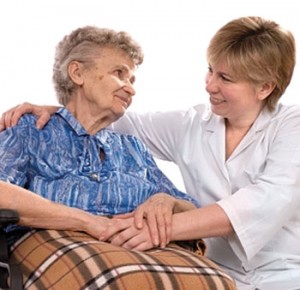By Ryan Colligan, Director Safe at Home Senior Care
But then we think, “Oh, I don’t need help. I have been taking care of myself my entire life.” Or “I can’t tell Mom or Dad what to do – they would never listen to me. He’s too proud, it’s not time yet, let’s wait.” So we wait and do what we can, all the while still wondering, “When should I look for help?”
This situation comes up all too often in our society. Many seniors struggle with their loss of independence even when they are not capable of caring for themselves without assistance because of changes in their physical condition that come naturally with age. Fortunately, we do not have to guess; here are some common indicators that help determine when it is time to get help before a crisis situation occurs:

- Personal Care: Are showers being taken regularly? Are teeth and hair being brushed and cared for regularly?
- Nutrition: Is weight stable and is food being eaten regularly? Does all the food in the refrigerator have current expiration dates or is some food spoiled?
- Mental Health: Is there difficulty in expressing thoughts or feelings or using the right words? Are there significant memory lapses (Forgetting the day or year or location) or major mood swings?
- Safety, Security & Sanitation: Is the house in a disorderly fashion that might contribute to the risk of falling? Have there been any falls in the past six months? Is trash piling up in and around the house?
Family members often see the changes in the way a elderly family member moves, acts, thinks and responds to situations around them, but dismiss them until one of two things happen:
- The family begins to spend so much time helping the senior that they have little time for their own responsibilities or
- The senior experiences a major physical or mental crisis like a hard fall when no one is around or become lost when they leave the house.
If you have a concern about even one of the indicators for yourself or a loved one, it is time to be open and honest about the concern. Address the issue and seek assistance before any of these becomes a crisis situation.
Santa Cruz is home to many professional agencies that offer specialized services for seniors in our community. These services enable our elderly population to continue living comfortably, safely and independently.
For more information please contact Ryan Colligan, Director at Safe at Home Senior Care at 462-3500.